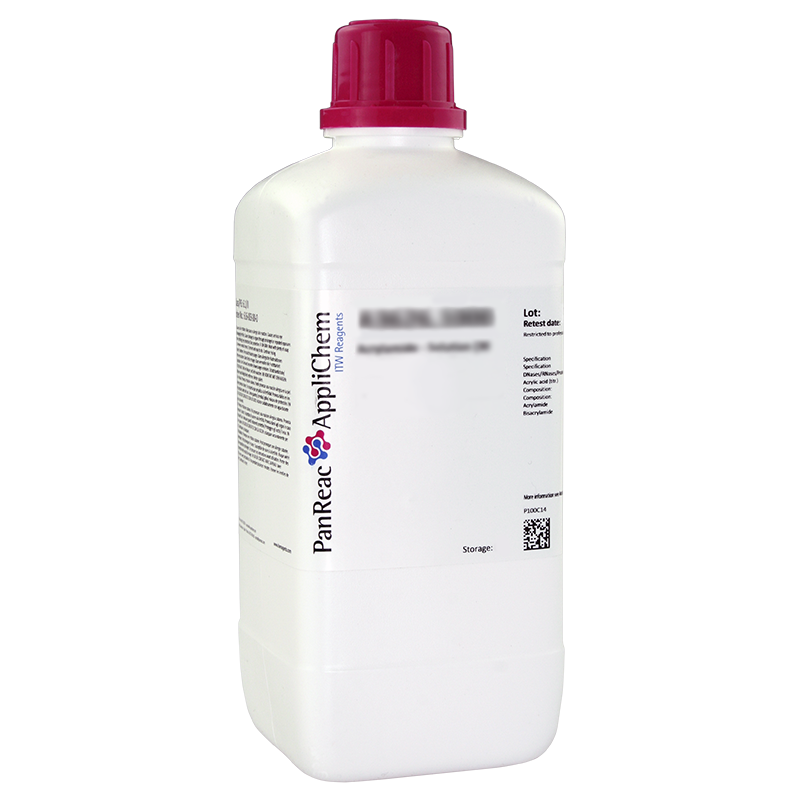Packs sizes (1)
| code | packaging size | price per unit | box price per unit | |
|---|---|---|---|---|
| Code & packaging | Price per piece | |||

|
code
A3658,1000
|
packaging size
1 L
|
price per unit
single
156,00€
|
box price per unit
|
Technical data
- Physical Description:
- Liquid
- Product Code:
- A3658
- Product Name:
- Acrylamide solution (40 %) - Mix 19 : 1 for molecular biology
- Short Description:
- additional product description: Aqueous solutions
- Specifications:
- DNases/RNases/Proteases: not detectable
Acrylic Acid (titr.): max. 0.001 %
Composition:
Acrylamide: 380.0 g/L
Bisacrylamide: 20.0 g/L
- Hazard pictograms
-
- UN:
- 3426
- Class/PG:
- 6.1/III
- ADR:
- 6.1/III
- IMDG:
- 6.1/III
- IATA:
- 6.1/III
- WGK:
- 3
- Storage:
- RT
- Signal Word:
- Danger
- GHS Symbols:
- GHS06
GHS08
- H Phrases:
- H301
H312+H332
H315
H317
H319
H340
H350
H361f
H372
- P Phrases:
- P280
P301+P310
P305+P351+P338
P321
P330
P362+P364
P405
P501
- CS:
- 38221900
- Index Nr.:
- 616-003-00-0





